Hey everybody. It’s me, Sir Zaid.
If you’re looking for ways to avoid being broke in the recession, this article is for you.
I’m about to reveal some easy ways to survive and thrive in this economic downturn without losing sleep, risking lives, or cutting ties.
I understand that this recession can be a very stressful and challenging time. I remember all those struggles I had to face in the 2008 recession. Thank God this time around I’m in a totally different position. That’s why today I’m sharing with you 5 unusual tips to avoid being broke in the recession.
1. Get a Big Why
Some people think this is a hocus focus kinda thing. But to me, it’s really necessary for this situation. If someone comes to you and asks for financial advice, and you start with the usual stuff like save more money, make more money, or track your expenses, you’re almost always leading him to failure, Why?
In short, it’s your current condition and the way we’re conditioned.
Here’s the irony in humanity…
Before diabetes or any other chronic illness, for that matter, it’s pretty hard for most people to eat clean. We simply can’t control our diet. After diabetes, eating clean suddenly becomes possible.
Before a divorce, before heartbroken, most people don’t know how to love or make love properly. They simply can’t manifest love. But after divorce, he’s a changed man. She’s a changed woman.
The same thing goes for finance. Before they’re broke, it’s pretty damn hard to manage finance. But after they’re broke, suddenly they CAN manage their finances.
Why is that? Is it that we don’t know any better? Most of us already know the danger of having too much sugar. We already know love requires commitment. I mean, it takes effort to make love, give love, or get love. We already know a financial tip or two. But why are we still slacking?
Because knowing is not the same as experiencing.
David Buss is one of the most quoted psychologists out there. He said that after the age of 25, it’s hard for people to ‘learn’. It’s very hard to change people when they’re adults. ‘You can’t teach old dogs new tricks,’ they say.
But before all you above 25 get depressed, there’s still hope, he said. People in adulthood learn best through massive trauma. It rewires our brain. but sometimes it’s too late, just like in the case of that diabetic patient earlier. If the trauma is massive enough, our brain will say ‘enough is enough’. That’s when we have our Harajuku moment. That’s where we have that drive to hustle, that REASON to overcome the odds.
This is the very reason why most people can only get their act together after a big tragedy.
If you’re currently reading this, I bet you’re looking for ways to avoid being broke, just like it says in the title. Most likely you’re not broke yet, and hopefully, you’ll never be broke. But, unlike the people who’re already broke, your drive might not be as strong as theirs, because you haven’t experienced a massive enough trauma yet.
Your advantage, compared to them, is that you still have the resources to work on. Your disadvantage, against them, is you don’t have that strong drive they have. There’s no Harajuku moment for you to capitalize on. This is your big problem.
We work so hard to get comfortable. But when we indulge in it too much, we get soft, we get weak. We lose our willpower little by little. And that’s the beginning of our demise. How many times you hear yourself saying “it’s just another sip of soda,” or another bite of chocolate, or another puff of the cigar, or another buy on the net. It’s okay, I can handle this. But before we know it, we wasted countless amounts of time, money, and resources on stuff that is killing us softly.
So is there a way for you to stay on course and avoid being broke in this economy, without experiencing a major tragedy?
Yes. It starts by building a Big Why. Here’s how…
Maybe you have done some of this before. But this time, you do all this with an awoken mind. That’s a big difference. It’s all about what you experience, the meaning, and how much and how deep you learn from them.
And maybe you can’t afford to do some of this. That’s alright. You can do the alternatives instead.
Step 1: Take a moment, a pen, and a piece of paper. Then ask yourself these questions:
1.“What will I gain when I avoid being broke?”
2.“What kind of pain will I experience if I become broke?”
Take some time. Give yourself some honest answers. Write from the bottom of your heart. Visualize whenever possible. Notice what you see, what you hear, what you smell, what you feel, kinesthetically, what you feel, emotionally, and what you think in both situations.
Stop reading, start doing. And get back to this when you’re done.
Step 2: Actively find some true stories about both conditions.
Read some news, articles, non-fiction, or autobiographies.
Learn what the broke people are experiencing. How would their day be like? Give them the empathy they deserve.
Similarly, learn what the well-off are experiencing. How would their day be like? Give them the respect some of them deserve. Feel sincerely happy for them. Pray for them to receive more. Pray for yourself the same fortune.
Step 3: Actively take a closer look at both conditions.
Go to both rich and poor neighborhoods. Notice the difference. Hang out with rich people someday and poor people the other day. Make new friends if you have to. Get in touch with old friends in both categories. Do more charity. Talk to real people at the charity event, both the fortunate and the less.
Step 4: Actively create some mini-experience of both situations for yourself
Live like the rich some days. Then live like the poor some other days.
Once in a while, book a nice Airbnb. The kind of place you’d like to own in the future. Test-drive some luxury cars. The ones you’re aiming for. Treat your honey with some fine dining, the ones that make you feel rich.
Go for some luxury vacations. These days you experience this once in a while. In the future, you might experience this every day. Do more charity. Give more donations like you’re already rich. This will come back to you in manifolds…
Do more fasting, be it intermittent fasting or spiritual fasting. Set a day or two where you refrain from buying a single thing, not even food or transportation. Go to the ghetto and live like the community there.
If you can do all this, you’ll learn that valuable lesson from experience. If you can do just half of this, you still learn the same lessons, but to a lower degree. If you can’t do any of it yet, that’s even a bigger reason why you have to avoid being broke. So you learn some lessons too.
By the way, don’t get too carried away, though. Do all this within your means, be it the lux or the hardship experience. Start small and make progress. For instance, do intermittent fasting once a month. Later, make it once a week. Book a staycation first. Later, book a 3-day vacation.
The knowledge and experience combined will build a strong reason to take good care of your financial wellbeing. Probably you’ve done something like this before. But from today onwards do them with an awoken mind. Have that life-lesson connection in both situations. This makes it more powerful.
2. Stack up your cash reserve fast
Now that you have the inner game handled, let’s tackle the how-tos.
If you don’t have enough cash, you’re just one tragedy away from losing everything, Don’t leave it to chance.
How much money should you save?
I hear many people say that you should save 6 months worth of your salary or income, so if something bad happens, you’re still doing fine. To me, that doesn’t quite hit the mark. That’s only applicable if you regularly spend less than you earn. Most people don’t.
And if you spend way less than you earn, that approach can be too time-consuming. It will take too long before you can get any piece of the action. You might lose a lot of opportunities to grow that money or invest some assets.
I suggest you save 6-12 months of your expenses, depending on your risk appetite, regardless of how much you earn. Some people call this the emergency fund, and I have no problem with that. I like to call it the protection fund, ‘coz I want to build better protection., not attracting more emergencies. Words have power, and I plan to capitalize as much as I can. But that’s just me.
Anyway, this should be the priority before anything else. If you haven’t covered 6-12 months yet, forget about investing for the time being, let alone your dream car or dream home. Do this first. Take baby steps. That’s the way we master anything.
This is why we just want to cover the expenses and not the income. You’d want to hit this goal fast, so you and your loved ones are well-protected, and you can stack up another reserve for other things like investment, business capital, and luxuries.
Right now you might be asking, “Why can’t I start investing with this money right off the bat? Shouldn’t I start investing ASAP?” Yeah, but any worthwhile investment has risk, and you can’t execute a good offense with a poor defense. Most importantly, in many cases, once you use the money to invest, you can’t liquidate or withdraw that money for other purposes like emergencies and stuff. This is like building a house of cards. It’s shaky. That’s why we need to stack this up fast.
The only exception to this rule is if you can find some sort of unit trust that’s guaranteed or backed up by your government, like ASB in Malaysia (can be translated as native/indigenous trust fund). This means that the government guarantees its positive return, that if it doesn’t give a positive return that year, the government will help make the return positive.
If you can find that kind of deal in your country, and you’re eligible, you can park this whole cash reserve in the trust fund. But keep yourself updated, ‘coz the rules and regulations can change any time.
But bear in mind. The dividend from this kind of fund is not that high. ASB for example historically gives only 4-12% dividend since it started (not including the bonuses). While this is better than parking your money in the bank, it pales in comparison to the top-performing unit trusts and mutual funds out there. But for a no-risk ‘investment’, we shouldn’t complain.
For the relatively higher risk higher return investments, start only when you have enough cash.
The next question is, “How do I build this cash reserve fast?”
At any given moment, be it before, during, or after the recession, the equation is always the same…
- Make more money
- Save more money
- Grow more money
- Attract more money
- Get better protection
- Improve your financial management
The situation, however, will determine the details, and this will determine your approach.
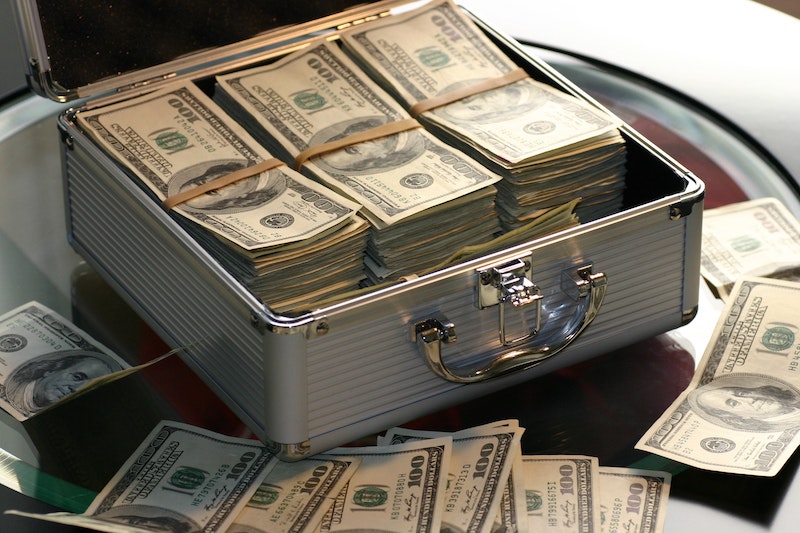
3. Recession-proof your income
Are you at risk of losing your job, or losing your business?
If you suspect your industry is going away, or you will be laid off, make a plan for what your options are. Reconsider your livelihood.
If you’ve ever done any research on surviving the recession, you might hear people suggest you build multiple streams of income. Most millionaires have 8. While having multiple income streams is awesome and is the way to go, it shouldn’t be touted just for the recession. It should be the practice for any economic climate.
No matter how many income streams you have right now, it’s important to make ‘em recession-proof. Because what good do all those income streams make if they’re affected by the recession? Don’t you think it’s better to have one income stream that is booming than multiple income streams that can’t even give positive ROI?
So, you better recession-proof all your income-streams. But how?
Adapt to the consumers’ wants and needs, and adjust your offers and business operations so you can continue meeting their demands.
For some companies, this means adding a delivery service to your operation. For others, this means changing face-to-face meetings with online meetings. For some employees, this means working from home and maintaining productivity. For other employees, this means starting a side hustle like e-hailing, food delivery, or dropshipping. For others, this means getting a new job altogether, ‘coz the company can’t afford them anymore or doesn’t need them anymore.
Economic climates are not created equal. Recession periods are not exactly equal. The 2020 recession is unique because it is made worse with the Covid-19 pandemic. Many businesses can’t operate. People lose their job because of that. Unlike in 2020, the 2008 recession presented a wonderful opportunity in the property industry (real estate bubble). Those with cash were killing it. In 1997, it was the currency exchange bubble.
The symptoms are somewhat the same (business close, retrenchment, people’s spending power decrease, etc.). But the causes are different. So your approach must be different, too. Treat the cause, not the symptom.
For the recent recession, we can say that the main cause is our inability to operate as usual since we have all these restrictions. The new normal restricts seemingly everything. And then many people lose their income. So their spending ability and priorities change. The question is if we know all this is changing, why do some businesses and professionals refuse to change?
To make your income or income streams recession-proof, ask yourself these fundamental questions:
- As a business owner, do people still want/need my products/services?
- As an employee, do people still want/need my company’s products/services?
- If yes, can they still afford them, and can we still provide them? How?
- If no, what do they want/need right now, what can they afford, and how can I provide?
In any circumstance, businesses that can still function wins. Employees that can still work wins.
Now, in our situation, if you can fulfill the market’s current demand, and still run your sales, marketing, and customer service, you will not only survive but thrive miraculously.
The answer for many surviving and thriving companies and professionals now is making good use of online technology. This is how we bypass those physical restrictions out there.
The bottom line is, you have to either make yourself relevant, find a place where you are relevant, or carve a relevant place for yourself.
That could mean you adjust your business operation or workflow, or you find a new business model, and serve a new group of people, or you upgrade your skills, tools, and resources.
Just look around you. At any given time, any given place, people around you will always want something, need something, and can afford something. How do you reach them, connect with them, offer them, serve them, and make them want more?
There are so many opportunities right now just from people being stuck at home alone. They need food, groceries, entertainment, information, inspiration, exercise equipment, workout guide, cookware, cooking guide, extra internet data, faster internet speed, additional laptop for their kids’ homeschooling, If you can fulfill just one of these, it’s a recession-proof income stream already.
And don’t get me started on B2B. So many companies are trying to go online, but all this web building, social media, graphic design, digital marketing are very new and intimidating to them. If you can help them in just one of those areas, this may well be your ticket to your next million.
Put on your consumer cap, put on your entrepreneur cap, and grab the opportunity.
4. Eliminate unnecessary expenses
We all know there are certain things that we can cut back on. There are so many things that we thought we need at some point, but in reality, or later on, it’s just something we can do without. While some of these expenses are small, they add up over time and put unnecessary pressure on your budget.
Things like:
- Credit card interest payments
- Your cable bill
- Unneeded insurance
- Pricey gym memberships and exercise classes
- Costly gifts
- Cigarettes and e-cigarettes
- Your pricey cell phone plan
- Takeout and delivery meals
- Bloated financial commissions
- Full-priced items
There might be more.
Trim these costs to get the most out of your budget. I don’t mean you must eliminate everything. Think thoroughly. Maybe you have an unlimited internet plan for your cellphone on top of an unlimited WiFi connection at home. If you can, consider eliminating, or downgrading one of those. Or what about the gym that you can’t go to? Or that Netflix you don’t have time to watch? Or those delivery meals?
Pick your 2 or 3 biggest discretionary areas and focus on those. It can be difficult to decide which one to cut and which one to keep. But you just got to prioritize and stay true to yourself. Do some self-reflection and think about the way you use all those subscriptions.
Those are the small but recurring expenses. Let’s not forget the big-ticket item you booked earlier before the recession. Things like vacation, wedding, concert ticket, etc.
This is even harder to do, ‘coz not only you’re already emotionally attached to them, but there are penalties and cancellation fees involved. But your cash today is worth more than your cash later. Just bare the fees instead of bare the full cost. And we don’t know when things can go back to normal. We don’t know if we can ever proceed with those plans in the future.

5. Negotiate a better deal
Most people don’t know they even have this option. There are several big areas in your expenses that you can call the company right now and negotiate a better deal. This has been done by many people in the know. One phone call alone can save you up to $1,000. Just imagine if you managed to negotiate with just half of them, if not all!
These companies are:
- Student loan companies
- Credit card companies
- Cellphone companies
- Cable TV companies
- Landlords
You can pick up the phone, call them and go, “You know what? I’ve been a good customer for X years. Covid-19 is making it difficult for me to sustain myself financially. I like to know what options you have for somebody like me.”
In many cases, people doing this are getting their fees cut in half, and they’re saving $1,000 from just a single phone call. This is the money that goes directly to your cash reserve a.k.a protection fund, a.k.a emergency fund, whatever you call it. All those, thanks to this little-known secret shared by a best-selling author, Remit Sethi.
Recap
How to avoid being broke in the recession:
- Get a BIG WHY
- Stack up your cash reserve fast
- Recession-proof your income
- Eliminate unnecessary expenses
- Negotiate a better deal
By the way, if you’re interested in learning more about earning more, saving more, and living a rich life, then be sure to check out Ramit Sethi’s new edition of “I Will Teach You to Be Rich.” Inside, you’ll learn:
• How to crush your debt and student loans faster than you thought possible
• How to set up no-fee, high-interest bank accounts that won’t gouge you for every penny
• How Ramit automates his finances so his money goes exactly where he wants it to—and how you can do it too
• How to talk your way out of late fees (with word-for-word scripts)
• How to save hundreds or even thousands per month (and still buy what you love)
• A set-it-and-forget-it investment strategy that’s dead simple and beats financial advisors at their own game
• How to handle buying a car or a house, paying for a wedding, having kids, and other big expenses—stress-free
• The exact words to use to negotiate a big raise at work
Plus, this 10th-anniversary edition features over 80 new pages, including:
• New tools
• New insights on money and psychology
• Amazing stories of how previous readers used the book to create their rich lives
Master your money—and then get on with your life.

